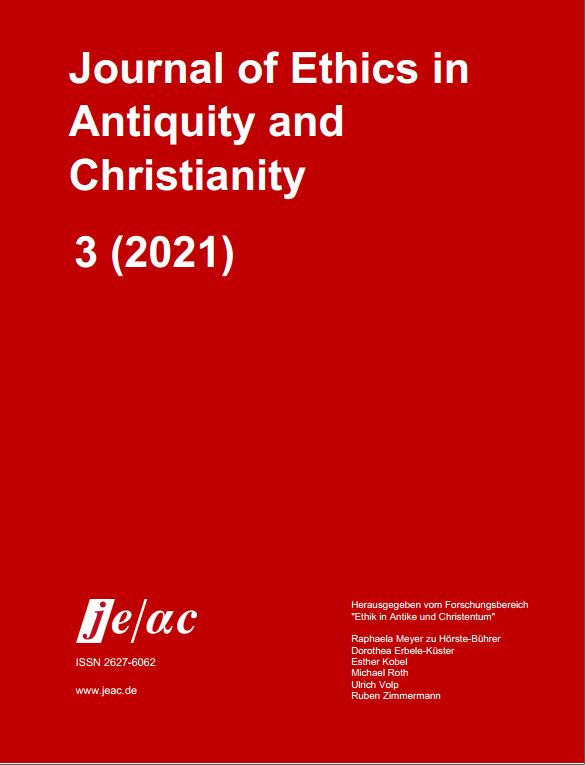Philanthr?pía im Kontext von agáp? und mím?sis theoú bei Agapet Justinians Diakon zwischen Nächstenliebe und klassischem Ideal
Hauptsächlicher Artikelinhalt
Abstract
When Justinian succeeded his uncle Justin I. in 527 the Roman Empire had been ruled by apart from Julian Christian monarchs for over 200 years. It seemed that the new religion had prevailed, and the imperial order finally became Christianised during the reign of Justinian. Nevertheless, Christian concepts did not simply replace traditions and practices, and we should rather assume a complex and interdependent process. This development can be illustrated and characterised with a text that deals with the rule of the monarch in general: the Ekthesis of Agapetus the Deacon, which provides evidence on how virtues of the emperor were conceptualised in a field shaped by the demands of realpolitik, inherited traditions, and the moral standards of Christian religion. By analysing a key virtue of the Roman monarchy and Christianity alike, philanthropía, this paper attempts to contribute to the understanding of this transformation. Agapetus conceptualises this value by referring to Christian and classical discourses. By attempting to reconcile Christian ideas with ancient traditions and political necessities, he generates flexibility to act for Justinian. Further, his conceptualisation is compatible with the emperor’s self-representation.

